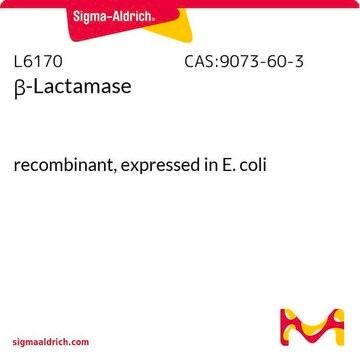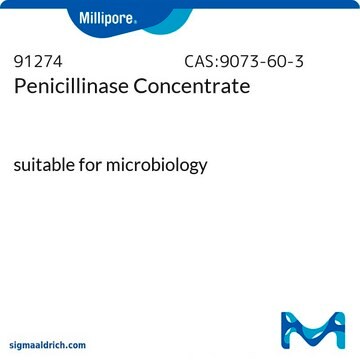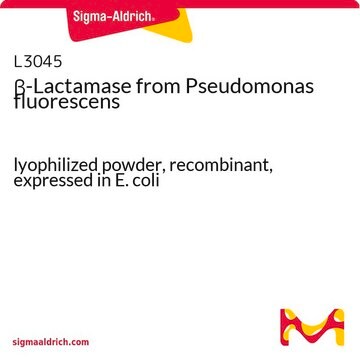426205
β-Lactamase, Bacillus cereus 569/H9
Synonym(s):
β-Lactamase, Bacillus cereus 569/H9, Penicillinase
About This Item
Recommended Products
biological source
Bacillus sp. (Bacillus cereus)
Quality Level
form
lyophilized
packaging
vial of ≥50 units β-lactamase II
vial of ≥500 units β-lactamase I
manufacturer/tradename
Calbiochem®
storage condition
OK to freeze
solubility
sterile distilled water: soluble
shipped in
ambient
storage temp.
−20°C
General description
Biochem/physiol Actions
Warning
Unit Definition
Reconstitution
Legal Information
Signal Word
Danger
Hazard Statements
Precautionary Statements
Hazard Classifications
Resp. Sens. 1 - Skin Sens. 1
Storage Class Code
11 - Combustible Solids
WGK
WGK 3
Flash Point(F)
Not applicable
Flash Point(C)
Not applicable
Certificates of Analysis (COA)
Search for Certificates of Analysis (COA) by entering the products Lot/Batch Number. Lot and Batch Numbers can be found on a product’s label following the words ‘Lot’ or ‘Batch’.
Already Own This Product?
Find documentation for the products that you have recently purchased in the Document Library.
Customers Also Viewed
Our team of scientists has experience in all areas of research including Life Science, Material Science, Chemical Synthesis, Chromatography, Analytical and many others.
Contact Technical Service









